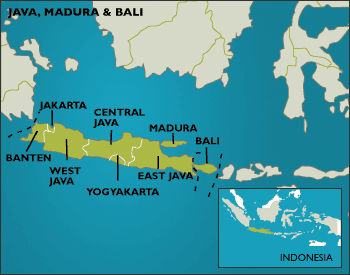Down to Earth No 59 November 2003
A notorious dam project, designed during the Suharto era, is due to go ahead next year despite opposition from local people and NGOs supporting them.
The Jatigede dam, in Sumedang, West Java, is being billed as the answer to flooding and drought problems in the northern lowlands of West Java. The government claims it will provide 90,000 hectares of farmland with irrigated water, increase the rice harvest as well as generate electricity for industry and supply clean drinking water for residents.

